The Greatest Progressive Metal Albums Of The 1980’s & 1990’s
Two decades of the finest Progressive Metal known to man....
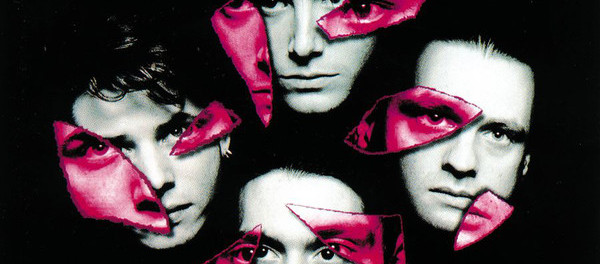 Source // a5.mzstatic.com
Source // a5.mzstatic.com
Progressive metal, in all it’s guises, has been home to a wealth of classic albums since its rise to prominence in the late 1980’s.
From death metal’s excursions into proggy territory to thrash’s diversions into ever more expansive and technical realms and those who rigidly adhered to the classic 80’s power/prog sound, progressive metal bloomed in the intervening years and this article focuses on those classic recordings which were releaed in the 1980’s and 1990’s and have admirably stood the test of time. To put it simply, if they were released today they’d blow your mind, just as they did all those years ago!
Strap yourselves in for a cerebral pasting, these classic progressive metal monsters were purpose built to fry your brains for all eternity! For the sake of diversity, our standard one album per band mantra applies.
Crimson Glory – Transcendence (1988)
Approaching progressive metal from a fast-paced, power metal angle, Crimson Glory‘s seminal second album is a full-on metal assault with it’s opening two tracks, Lady In Winter and Red Sharks, providing a welcome kick to the nuts.
So far, not so progressive we hear you cry!
Well, it’s true, Transcendence often smacks of straight-up American heavy metal but its progressive nature subtly reveals itself, the band enhancing progressive metal’s standing via lyrical concepts and rapid-fire tempo changes.
“In Dark Places”, the album highlight, is a progressive metal updating of Led Zeppelin’s “Kashmir” and “Burning Bridges” takes the slow burn approach to epic balladry; consummate musicianship backed up by vocalist Midnight’s powerful, classic metal delivery.
If released today, Transcendence‘s classic metal stylings and adventurous compositions would still turn heads, its ability to stretch minds and bang heads proving as formidable as ever!
Queensrÿche – Operation: Mindcrime (1988)
Another release from 1988 and a landmark concept album from a band who epitomised ‘progressive’ in the 1980’s.
Queensrÿche‘s Operation:Mindcrime virtually needs no introduction, it’s place in progressive metal history so firmly set in stone that it practically holds together the entire foundations of the scene.
As concept albums go, it’s also a masterclass in world building, each track serving the narrative perfectly yet never forgetting that infectious melody and memorable riffs are equally as important as ushering metal into new directions; “Spreading The Disease” and “Revolution Calling” proving that ambitious concept albums can be fiercely intelligent and still rock hard!
Queensrÿche returned to their finest hour in 2006 with Operation: Mindcrime II and vocalist Geoff Tate eventually adopted the moniker after the band splintered in 2012; proof that this undisputed progressive metal classic is as important today as it was 29 years ago.
Iron Maiden – Seventh Son Of A Seventh Son (1988)
Iron Maiden‘s first real dip into pure proggy waters came on 1988’s bona-fide classic, Seventh Son Of A Seventh Son.
Adding keyboards to their trademark sound upped the already intensified drama and the epic title track indicated that Maiden were no strangers to abrupt time changes and high-brow concepts.
Their trademark gallop wasn’t gone – “The Evil That Men Do” maintained the desired grit of old – but a new found finesse now accompanied the memorable choruses and elaborate structures. Somehow, despite composing some of the most progressive songs of their illustrious career, Maiden were still savvy enough to include their obligatory hit single in the shape of “Can I Play With Madness”. A song that maintained the high quality found on the preceding “Wasted Years”, “2 Minutes to Midnight”, “The Trooper” and “Run To The Hills”.
Seventh Son Of A Seventh Son remains a significant moment in Maiden’s formidable back catalogue and we doubt anyone would be unhappy if Maiden released an album of this calibre in 2018!
Fates Warning – No Exit (1988)
Similar in style to Crimson Glory, Fates Warning were another band to adopt a power/thrash approach to progressive metal.
No Exit thrashed hard, check out “Anarchy Divine”, while incorporating progressive metal’s composite structures and Ray Alder’s intensly powerful vocals continued where his predecessor, John Arch, left off; vocals that may be an acquired taste but were to become a staple in late 80’s/early 90’s prog metal.
Formidable and frenetic, it’s the 22 minute epic,“The Ivory Gate of Dreams” which looms large over prog metal history; Fates Warning taking the genre by the scruff of the neck and dragging it kicking and screaming into mainstream acceptance.
No Exit is as surprisingly experimental now as it was in 1988, its rampant time changes and falsetto vocals proving as indelibly effective as ever.
Metallica – …And Justice For All (1988)
This album is rightfully celebrated as a milestone in thrash history and Metallica would never be this expansive and this experimental again.
…And Justice For All rivalled technical thrashers Heathen, Realm and Believer in the progressive thrash metal stakes, as Metallica recovered from the death of Cliff Burton by proving they could not only survive without his guidance, they could flourish! While it may have its flaws (bone-dry production and Jason Newsted’s mostly inaudible bass spring instantly to mind) it remains a milestone of progressive thrash.
With a clinical approach bordering on maniacal obsession the likes of the epic “…And Justice For All” and “One” were the epitome of surgical precision and it was left to “Dyers Eve” to remind fans that this was the band that once penned “Whiplash”!
“Do you hear what I hear?”, snarled James Hetfield on the absurdly catchy, stop-start rifferama of “Eye Of The Beholder”. We did James, and we still like it!
Realm – Endless War (1988)
Another technical/progressive thrash masterclass, Realm’s histrionic, kinetic and brain-scrambling debut still pummels the senses with its falsetto vocals and stampeding rhythms; ever threatening to career off the precipice of plausibility!
The guitars are virtually impossible to pin down, a cacophonous aural caning containing endless shredding, lightning-quick picking, intricate leads, the odd surprising acoustic section and more sickle-sharp rhythm’s and hair-raising solo’s than seems humanly possible to assimilate.
The frenetic pace of the entire album only shifts into a (slightly) lower gear for the likes of the slow-burning “Eminence” and the borderline balladry of “Second Coming“, while the classic sound of “All Heads Will Turn To The Hunt” helps to calm the pace of the attention deficit soloing and endless shifts in tempo that permeate through this accomplished debut.
Deathrow – Deception Ignored (1988)
Where this came from is anyone’s guess!
After the relatively no-thrills thrash found on Deathrow’s Riders Of Doom aka Satan’s Gift and Raging Steel, there was virtually no indication that Deathrow would break boundaries with their 3rd full length release!
Complex and rhythmically confounding – but never at the cost of a satisfying sense of structure – the likes of “Narcotic” were insane blasts of technical wizardry and should have marked Deathrow out as pioneers of progressive metal this early in the game.
Instead, obscurity beckoned with Deception Ignored initially receiving a lukewarm response from a legion of confused fans. Fortunately, this outstanding album has gone on to be revered as a work of almost labyrinthian art, misunderstood by many but now beloved by those in the know.
A technical masterpiece from a band way ahead of the curve!
Kings X – Gretchen Goes To Nebraska (1989)
Describing themselves as indescribable, Kings X are a band who aptly fit that modus operandi but their fearless experimentation – and melding of disparate styles – on Gretchen Goes To Nebraska tags them firmly in the progressive metal camp; even if the ‘metal’ may not be as metallic as many of the bands in this feature!
Quintessentialy a bands band, Kings X took the best bits of Pink Floyd, Rush and The Beatles and added funk, soul and harmonies so rich that if it weren’t for Ty Tabor’s crunchy riffs scattered throughout, they could almost qualify as prog-pop.
Predating a grunge sound that Alice In Chains would build an entire career around, both this and Kings X’s equally accomplished debut, Out Of The Silent Planet, would prove to be highly influential and Gretchen Goes To Nebraska still sounds fresh and vital today.
Voivod – Nothingface (1989)
Nothingface is not only Voivod’s most successful album, it’s also a critically worshipped progressive metal classic.
Home to Voivod’s universally adored cover of Pink Floyd’s “Astronomy Divine”, these unconventional Canadians wore their prog influences proudly on their sleeves and its testament to the quality of the album that the bulk of Nothingface maintains the credibility of Floyd’s classic composition.
Voivod arguably never bettered Nothingface‘s distinct brand of progressive thrash and tracks such as the confusingly obtuse “Pre–Ignition” and “Into My Hypercube” are as mesmerisingly alien as ever; obscure riffs and vocal lines somehow melding perfectly!
Voivod have returned to the complex rhythms of Nothingface in the preceding years – check out 2014’s exceptional Target Earth – but this is the album that still resonates with the fans and the band alike!
Watchtower – Control And Resistance (1989)
Bands in the late 80’s seemed to tap into an inexhaustible well of experimentation and progressive attitudes and Watchtower were no exception.
Twisting thrash into ever more contorted forms, Control And Resistance was the bastard son of Bay Area thrash and jazz-fusion (“The Eldritch” perfectly encapsulates their approach in just 3 concise minutes) and remains a confounding and technically astonishing slice of futuristic progressive metal.
Kudos to the astonishingly gifted Ron Jarzombek (Spastic Ink, Blotted Science) who’s incendiary guitar work is simply mind-blowing and whose split-second time changes and elaborate solos were undoubtedly a massive influence on the technical djent scene that thrives today.
So ahead of it’s time, Control And Resistance still maintains the power to shock and surprise….imagine how it sounded 29 years ago!
Mekong Delta – Dances Of Death (And Other Walking Shadows) (1990)
Let’s be fair, we could have included practically any one of Mekong Delta‘s 80’s and 90’s albums (take your pick from Mekong Delta / The Principal Of Doubt / Kaleidoscope / Visons Fugitives) as each and every one can be considered a milestone of progressive thrash metal.
We’ve gone for Dances Of Death….Mekong Delta’s highly technical, yet undeniably aggressive, fourth album that often bordered on undecipherable madness, with labyrinthine song structures and abstract riff-patterns jostling for attention amidst a sturdy thrash framework.
With “Dances Of Death” broken down into 8 movements over 19 thrilling minutes, Mekong Delta’s prog intentions couldn’t have been made clearer and while it may not be an easy album to dive into, if you’re going to get the most out of this rewarding beast, then you’d better face the fucker head-on!
Twisted genius.
Psychotic Waltz – A Social Grace (1990)
American proggers Psychotic Waltz will have passed the casual prog metal fan by and that is the kind of sacrilege this article aims to address!
Absurdly talented, their debut album, A Social Grace, is perhaps one of the most overlooked and underappreicated prog metal albums of the early 90’s. Far superior than the majority of their peers, Psychotic Waltz’s brand of heaviness and skilled musicianship was highly original and their syncopated grooves and schizophrenic diversions were arguably at their most impressive on A Social Grace.
Complex arrangements abound as the band walked a very fine line between incomprehensible virtuosity and accessible song structure with relative ease and flawless execution. There’s simply no overstating just how unfathomably textured this album is and just how effective Psychotic Waltz were in delivering their distinct vision.
Sheer class.
Believer – Sanity Obscure (1990)
Bordering on death/thrash, Believer’s second album was a real heavy-hitter.
Technical but still infused with riffs that crushed as well as confused, Sanity Obscure may well be an ‘obscure’ album but it’s also a minor classic and should appeal to any fans of the wildly experimental and progressive stylings of Death, Voivod and Atheist.
The all encompassing chaos throughout Sanity Obscure‘s 8 furious tracks is punctuated by dissonant riffs, unpredictable stop-start rhythms and arrangements so complicated they must have been a bugger to perform live! Without sacrificing that all important moshability, Sanity Obscure impressed most with it’s sheer unconformity, accomplished musicianship and tortured vocals courtesy of vocalist/guitarist Kurt Bachman.
Believer’s cover of U2’s “Like A Song” may have been a slight mis-step but when balanced with the exquisite and completely bonkers “Dies Irae (Day of Wrath)“, the relentless “Stop The Madness” and the progressive masterpiece of the title track itself, Sanity Obscure should be labelled as nothing less than an utter triumph.
Sieges Even – Steps (1990)
It was quite a leap from debut album Lifecycle – with its progressive thrashy overtones – to this jazz-fusion inspired prog metal masterpiece from Germany’s Sieges Even, with fans bemoaning such a wholesale change on its initial release!
With no prior notice, these unhinged geniuses delivered Steps; a puzzling collection of hard jazzy rhythms, contorted tech riffs, acoustic interludes and no end of dramatic flourishes. The results confounded expectation at every turn with each track twisting and turning through enough syncopated movements to make even Rush confused.
Perhaps a little softer than much of the material found in this feature, it’s primarily the fearless nature of Steps that warrants its inclusion in place of the equally impressive A Sense Of Change and the more aggressive Lifecycle.
The likes of Dream Theater, Cynic and Chuck Schuldiner himself were undoubtedly listening at the time of release….and tentatively taking their own steps to emulating this all-time classic!
Heathen – Victims Of Deception (1991)
Absolutely, mind-bogglingly brilliant.
That’s a fair summation of Heathen‘s piece de resistance, a riff-fest of such magnitude and scope that these Bay Area thrashers should be a household name. The fact they’re not is another example of an album of such astounding quality and consistency falling by the wayside while The Big 4 marched on to greater glories.
Recorded by musicians of insane ability – and a singer who could, gulp, actually fuckin’ sing! – this progressive thrash masterpiece practically surpasses Metallica, Megadeth and co. in each and every area.
The riffs are crunchier and the progressive elements are better suited to the melodic manifestations that make up this magnum opus, allowing the band to pen heavy, aggressive tunes capable of impressing the most obtuse prog lover!
Heathen ended up being victims of circumstances but hindsight proves they were actually at the forefront of their chosen field…..incidentally, 2010’s comeback album, The Evolution Of Chaos, was equally impressive.
Not. Enough. Superlatives.
Atheist – Unquestionable Presence (1991)
The finest progressive death metal album ever conceived? We certainly think so and with Unquestionable Presence, Atheist transformed the death metal landscape in a blitzkrieg of technical bass lines, dissonant and warped riffs unaccustomed to generic structure and an almost improvised feel to Steve Flynn’s commanding drumming.
Led by Kelly Schaefer’s rasp-inflected growl, the primitive nature of death metal was dissolved overnight within a framework of challenging lyricism and even more challenging musicianship. Structured chaos reigned as thrash, death, jazz, fusion and prog rock collided in an esoteric force of will, fuelled by integrity, vision and an unwavering commitment to forge forward into new terrain. While Atheists’ debut, Piece Of Time, had turned heads, Unquestionable Presence blew minds.
Unquestionable Presence remains a landmark record in the history of death metal and it’s more than a little unnerving to think that this pioneering piece of artistry came from the minds of 4 human beings.
Unquestionably unmatched, unparalleled and utterly unique.
Anacrusis – Manic Impressions (1991)
Anacrusis‘ progression from technical thrashers, on their Suffering Hour debut, to the progressive metal majesty of Manic Impressions, and its equally accomplished follow-up Screams And Whispers, has seldom been matched and yet this most unique band rarely receive the recognition they deserve.
Manic Impressions, a study of mental anguish and deep depression counteracts it’s bleak subject matter with a unique sound both complex and dynamic and aggressive yet delicate. Gems such as “Something Real” and “Paint A Picture” painted an extremely vivid picture of the wealth of ideas Anacrusis seemed to hold in abundance. This album may sound clinically detached at times but its discordant riffs, schizophrenic vocals and intricate bass lines smother the listener in a dry, arid atmosphere unique to Anacrusis.
Strangely addictable, Manic Impressions has retained its unique charms 26 years on.
Savatage – Streets: A Rock Opera (1991)
The album cover may be hideously of it’s time (check out the preening machismo, low-cut attire and flowing locks sported by Savatage) but the music found on Streets is anything but archaic.
A ‘rock opera’ is always going to sound dramatic, over the top and flamboyantly extravagant and it’s for exactly those reasons that Streets has barely aged a day. Taking a West End/Broadway approach to the concept album, the theatrics enhance the story, throwing the listener directly into the narrative of a lost soul attempting to find himself again in the seedy streets of New York City.
Spilling over with epic balladry, streamlined rockers and symphonic grandeur, the impassioned delivery of Jon Oliva and the intricate guitar leads of Criss Oliva showcased a group of musicians at the height of their collaborative creativity.
For a respected power/thrash metal band to even contemplate a rock opera as ambitious and so stunningly realised as Streets bordered on madness but just listen to “Streets” and “Believe” if you need proof that this is one theatrical journey down darkened back-streets that’s still well worth taking!
Jester’s March – Beyond (1991)
Utterly unpredictable and progressive within its own, seemingly limitless boundaries, Beyond is yet another example of a 90’s band taking the blueprint of thrash and contorting it to suit their own agenda.
The Germans were always at the forefront of emerging trends and Dortmund’s Jester’s March were no different. Here was a band who fashioned an album of heavily melodic prog metal, enriched with thrash influences, layered vocals and 80’s keyboards. A thrilling mix of classic influences and burgeoning scenes!
With vocals courtesy of Olaf Bilic recalling the dramatic power of Queensrÿche’s Geoff Tate, this early 90’s euro-prog effort channelled the classic sound of 80’s prog with the harder-hitting riffs of thrash. The results were suitably bombastic, as richly rewarding in complexity as they were in accessibility and preceded the sounds arguably perfected by Symphony X and Shadow Gallery as the decade came to an end.
Death – Human (1991)
Chuck Sculdiner changed the landscape he originally helped to mould when Death released Human in 1991.
Out went the gore and in came the intelligence, Chuck dismissing the lump-headed violence of old and embracing an introspective, humanistic approach. Backed up by a formidable death metal supergroup in its own right, Chuck and guitarist Paul Masvidal (Cynic), bassist Steve DiGiorgio (Sadus, Autopsy, Testament, Iced Earth) and drummer Sean Reinhart (Cynic) changed the face of death metal overnight and, alongside the influence of Atheist’s Unquestionable Presence and Pestilence’s Testimony Of The Ancients, birthed a new breed of technical, progressive death metal.
Death’s flawless freedom of expression floored the majority of their peers with “Flattening Of Emotions”, “Lack Of Comprehension” and “Vacant Planets” particularly showcasing the diversity each band member bought to the table.
Flurries of frenzied riffs and intricate bass and drum work competed with jazz-fusion passages of improvisation while still maintaining the backbone of death metal; these were songs you could philosophise over while still head-banging until your head practically fell off!
Mayfair – Behind… (1993)
Taking their cues from Rush but elaborating on the Canadian trio’s heavier aspects, Austria’s Mayfair were a terminally unfashionable prog metal act who not only milked the Rush back catalogue for its more obtuse moments (and that’s saying something!) but also dared to combine the whimsical nature of the UK’s Canterbury scene from the late 60’s/early 70’s with the more histrionic moments of Queensryche.
That’s quite the combination and the results were as uniformly unexpected; odd vocal tics accompanying rolling drums, ethereal guitars and moments of doom metal heaviness interspersed with Voivod-esque dissonance alongside Rush’s penchant for mind-enhancing percussion.
As perhaps expected, this all adds up to 30 mins of completely unexpected musical madness as Mayfair’s tension between complicated harmonies, jazz-fusion-esque improvisation and an intriguing mix of the silly and the serious comes to the fore.
Bonkers.
Angra – Angels Cry (1993)
Angra‘s first full-length album, a simply stunning example of progressive power metal force featuring Andre Matos’ peerless voice and Kiko Loureiro’s soaring guitar – retained the prog metal sound of the 1980’s while forging forward with their own single-minded vision.
While the purist bombastic power/prog seemed to be the order of the day, these Brazilians were more adept at incorporating a neo-classical shredding style to augment their sound and the likes of the title track are all the more powerful because of it.
Angra’s surprisingly faithful cover of Kate Bush’s “Wuthering Heights” needs to be heard to be believed and yes, Andre Matos somehow hits those high notes!
By 1993, prog metal was getting significantly heavier but Angra were still fighting the good fight and delivering flights of power/prog fancy in the process!
Pestilence – Spheres (1993)
From thrash metal (Malleus Maleficarum) to death metal (Consuming Impulse) to progressive death metal (Testimony Of The Ancients) to Spheres; an album so eclectic it fits all previous descriptions and throws some jazz-fusion into the mix to create a spacey, avant-garde, progessive metal masterpiece.
Pestilence‘s 4th album may have split fans straight down the midd back in 1993 but there’s no escaping its timeless appeal today.
Easing fans gently into ever challenging terrain, Spheres is cannily front-loaded with death metal indebted tracks designed to appeal to the fanbase before unleashing the triumvirate of “Personal Energy”, “Voices From Within” and “Spheres”; songs that barely register as death metal and thrilling examples of a band tapping into otherworldly influences.
Cynic – Focus (1993)
Cynic may have emerged from the murky swamps of late ‘1980s Floridian death metal scene but to compare their progressively minded excursions into unexplored realms, to the bludgeoning of gore-hounds Cannibal Corpse and religion-baiting Deicide, is akin to comparing caviar to rice pudding!
Wildly experimental, Cynic inadvertently followed a similar path to Holland’s Pestilence and crafted a death metal take on Jazz-fusion (Focus was released just 4 months after Pestilence’s Spheres), eschewing the brutality of old-school death metal in favour of complex rhythms, moments of ambient calm and synthesised vocals to accompany the de rigueur guttural growls.
Focus was death metal but not as we knew it.
It still sounds utterly unique to this day, a sound few bands would dare to emulate in the intervening years, and this once in a lifetime convergence of such talent and tenacity leaves Focus standing tall as one of progressive metal’s finest moments.
Conception – Parallel Minds (1993)
Fans of symphonic power metallers Kamelot take note; ex-lead singer Roy Khan first made his mark in Norway’s Conception, the progressive power metal band that created an unheralded early 90’s gem in the shape of Parallel Minds.
Suffice to say, Khan’s vocals are outstanding here and while the overall sound of Parallel Minds may have been out of sync with prevailing trends, it’s the soaring vocals, power metal melodies, expressive keyboards and crunchy mid-paced riffs, that render Conception’s approach timeless.
Well crafted songs – ingenious in their perceived simplicity – masked a band capable of delivering something which bordered on regal; a case of power metal royalty claiming the throne before they’d even been fully conceived!
Vauxdvihl – To Dimension Logic (1994)
The epitome of the term ‘cult item’, Vauxdvihl‘s To Dimension Logic may be a melancholy affair that’s practically been forgotten but its a damn near perfect representation of progressive metal in the 90’s.
With a cold, bleak atmosphere – aided and abetted by an abundance of almost robotic spoken word vocals – To Dimension Logic remains a true curiosity, its impact unsullied by the passing of time as the obligatory Rush and Queensryche influences brush shoulders with an industrial edge.
This is otherworldly stuff, transcending the pitfalls of prog metal by avoiding over the top showboating and instead concentrating on conveying a myriad of emotions via multiple styles and outstanding songwriting. It’s no understatement to suggest Vauxdvihl were onto something particularly special but sadly, To Dimension Logic is the only full length album to their name.
The video below credits this album as a “prog metal masterpiece”….we agree wholeheartedly!
Aftermath – The Eyes Of Tomorrow (1994)
Aftermath‘s Eyes Of Tomorrow is progressive thrash metal incarnate; off kilter rhythms and mind-boggling complexity jostling with infectious melody, ingenious hooks and heads-down thrashing.
Creatively eccentric, it’s the likes of “Being” and the epic “Experience” that still surprise the most. Filled with fluid leads, accomplished solos and dark ambience, the technicality and progressive nature of Eyes Of Tomorrow is clear to hear and stands as the perfect counterpoint to the moments of up-tempo thrash and staccato riffing that remind the listener that this is still a thrash record after all.
While Kyriakos Charlie Tsiolis’ vocals may prove to be an acquired taste – although we challenge anyone to try spitting out lyrics at a pace that matches the frenzied patterns Aftermath conjure – the borderline spoken word nature of his delivery is actually the perfect fit for the schizophrenic aural battery his words accompany. Conventional structure be damned! When music is this undeniably accomplished and genuinely thrilling, the tried and tested formula’s seem relatively passé; the technicality and individuality of Aftermath proving infinitely more rewarding than the meat ‘n’ potatoes thrash trotted out by far too many bands in the early 90’s.
If the likes of Heathen, Anacrusis and Voivod float your boat then Aftermath are your next port of call….if you haven’t discovered them already of course!
Meshuggah – Destroy, Erase, Improve (1995)
It takes something special to create an entire sub-genre single-handed but that’s exactly what Meshuggah achieved with Destroy, Erase, Improve, an album that ushered in a new era of technical wizardry.
These ridiculously talented Swedes destroyed, erased and improved on the progressive metal model with their groundbreaking mix of mind-melting polyrhythms, stop-start riffs and inhuman drums and, somehow, this timeline altering burst of future metal still resulted in catchy as fuck tracks such as “Future Breed Machine”!
Djent was born.
Metal was left permanently altered.
Amorphis – Elegy (1996)
Another band to discard the shackles of their past and embrace a more expansive sonic palette, Amorphis jettisoned their primitive death/doom persona on Elegy, an album that now featured clean vocals – sung by new vocalist Pasi Koskinen – and music and lyrics inspired by the traditional Finnish ballads and poems compiled in the Kanteletar by Elias Lönnrot in 1840.
With elements of prog, folk, melodic death metal and traditional heavy metal converging seamlessly, Amorphis took the ideas that began to take shape on the equally exquisite – yet far heavier – Tales From A Thousand Lakes and forged forward with utter conviction.
The result was an album that left many fans feeling initially cold, although this perception/opinion would change in the preceding years as Elegy‘s reputation grew and grew into the revered collection so beloved today.
Tool – Ænima (1996)
Tool, a band who rose from the ashes of grunge and dallied with nu-metal and alt metal during their infancy, cut a swathe through mainstream metal with their own brand of unique and innovative progressive metal and Ænima would be the album that introduced them to the masses.
Downright dirty, dank, dense and distasteful, the likes of “Stinkfist, “Hooker With A Penis” and “Eulogy” were rebellious anthems designed to provoke and taunt and, at this stage, Tool were still a raw entity, far removed from the cleaner colossus they would become.
Fortunately, this stripped-back approach only adds to the overall experience.
Tool’s use of complex poly-rhythms, ingenious instrumental experimentation and their revered elasticity as a band with ever-evolving ideals marked them out as pioneers from the get-go and Ænima remains an album which rewards the more it is listened to.
Edge Of Sanity – Crimson (1996)
Crimson, the fifth full-length studio album from Swedish death metallers Edge Of Sanity, marked their first concept album and the moment when they became a progressive death metal force to be reckoned with!
Featuring a single 40-minute track – a brave move in itself – this bleak outlook on the survival of humanity was a marvel of musicianship, a forever evolving beast that seamlessly changed pace from full-on death metal to clean acoustics without warning.
Featuring a guest appearance from Mikael Åkerfeldt (Opeth) on lead guitar and additional vocals, Edge Of Sanity would return to these themes on Crimson II but it’s this first outing that remains a treasured progressive death metal milestone.
In a league if its own.
Devin Townsend – Ocean Machine: Biomech (1997)
Pretty much everything Devin Townsend has ever touched turns to gold but it’s Ocean Machine that we keep coming back to.
An album devoid of pretension, this is pure artistry and pure progressive metal majesty at work. With an innate ability to wring emotion out of each carefully conceived moment, it’s almost impossible to accurately describe the crashing wall of beautiful sound that emerges from this album without resorting to tired cliche.
But we’ll try.
Gently lapping at the edge of your subconsciousness, Ocean Machine: Biomech managed to be both heavy and serene at the same time, its sprawling undertow of ideas, tones and unusual ambience perfectly executed and breathlessly claustrophobic.
We couldn’t be sure, but listening to this work of genius while semi-submerged in an isolation tank could very well transport you to other realms….it’s that otherworldly and so completely, so deliriously, immersive!
Symphony X – The Divine Wings Of Tragedy (1997)
With elements of Queen, Yngwie Malmsteem and Rainbow finding their way through Symphony X‘s seriously crunchy riffs, The Divine Wings Of Tragedy combined hefty grit and metal muscle with expansive, adventurous songwriting and occasionally jaw-dropping theatrical flourishes to create a true progressive metal classic; comparisons with Dream Theater were inevitable but Divine Wings stands on its own merits.
The gargantuan 20 minute title track still galvanises as it negotiates a neo-classical maze of twists and turns featuring a cappella, heads-down Dio-esque power metal and sublime flourishes of Keyboard-infused; all embodied by Russell Allen’s ridiculously varied vocals.
A prog metal classic and no mistake, anyone who experiences this masterpiece for the first time so many years after release will still be floored by its ambition and technique.
Shadow Gallery – Tyranny (1998)
Opening with an instrumental that ably combines all the facets progressive metal fans demand, Shadow Gallery‘s whirlwind of keys, staccato riffs and high tempos may dial down the heavy when compared to many bands in this feature but Tyranny is still defiantly prog metal, even if it favours melody over muscle.
Maintaining a relatively streamlined – and radio friendly – approach Tyranny‘s high calibre songwriting is of a consistency rarely heard, amounting to an album that must be absorbed in its entirety to appreciate its true scope. Nevertheless, “I Believe” is a noteworthy epic featuring (brief) guest vocals from Dream Theater’s James LaBrie and Mystery’s stop-start clash of intricate riffs, layered keyboards and harmonies are highlights.
True prog metal fans revere Tyranny as a benchmark of the genre and this lofty position has yet to be usurped in the preceding years. Classic and highly influential.
Gorguts – Obscura (1998)
When Gorguts left their fairly run of the mill death metal style behind – as exemplified on 1991’s Considered Dead and 1993’s The Erosion of Sanity – and embraced a free-form, free-thinking progressive jazz mentality on 1998’s Obscura the world shuddered at what was unearthed and Gorguts have never looked back.
A tour de force, spoken in a virtually unrecognisable musical dialect known only to mastermind Luc Lemay, Obscura was unencumbered by tradition and completely transcendent in it’s chaotically dissonant complexity. Toying with death metal’s building blocks, Gorguts reshaped them amidst discordant guitar leads and harmonic wails while other, equally foreign, atonal noises pushed and shoved against changing tempos and whiplash-inducing time signatures.
As you can imagine, there’s no groove to get behind, no simple riff to get that head-banging, this technical madness is bound by no logical means of ‘normal’ musical expression and is brilliantly bewildering because of it. The only reliable element of Obscura was Luc Lemay’s now trademarked anguished roar.
No one sounded like Gorguts in 1998.
Ayreon – Into The Electric Castle: A Space Opera (1998)
From Savatage’s rock opera to Aryeon‘s space opera, a Sci-fi concept album so mind-bogglingly immersive that its highly accessible nature stands as testament to the skills of Ayreon’s songwriter, producer, singer and multi-instrumentalist; Arjen Anthony Lucassen.
Channeling the no fear attitude of prog rock giants Yes, this terminally unfashionable pinnacle of progressive metal is in fact a timeless ode to unshackled escapism and indulgent flights of fancy and is an essential progressive metal masterwork. Camper than a clearance sale at Millets, Into The Electric Castle‘s irresistable sense of fun throws everything into the mix; prog rock/metal,neo-classical, space-rock, folk and jazz-fusion all make an appearance and all (somehow) blend seamlessly.
“You must enter the nuclear portals of the electric castle!” instructs the narrator on “Welcome To The Dimension”, who are we to argue when the journey is still this enthralling and this captivating 21 years later.
Opeth – My Arms, Your Hearse (1998)
Opeth would go on to achieve legendary prog metal status in the 00’s and beyond but in 1998 they were still transforming into the colossus we know today.
While Orchid and Morningrise had indicated greatness, it was My Arms, Your Hearse – and it’s cohesive collection of adventurous epics – that perfected the melding of brutal death/black metal riffs and vocals with mellower passages of clean and acoustic guitar and vocal harmonies. A formula that now seems almost passé but in ’98, Opeth were transcending genres and becoming a world-beating entity all of their own.
As you’d expect, the likes of “April Ethereal,” “When,” and “The Amen Corner” were astonishingly progressive, home to an endless sea of memorable riffs despite their bum-numbing length but it was when Opeth unveiled the softer, more contemplative “Prologue” that a progressive metal scene leader was born….here was an instrumental, deceptive in its simplicity, that took the clarity of Pink Floyd and introduced a generation of metal-heads to a mellotron-drenched, extended guitar solo like no other. Horizons were broadened and Opeth’s love for obscure 70’s prog rock could not have been made more clear.
Amazingly, Opeth are still finding ways to challenge us, nearly 20 years later!
Agalloch – Pale Folklore (1999)
Black metal has historically belonged to the Norwegians but Pale Folklore, the debut album from American progressive black metallers Agalloch, bucked the trend in 1999.
Featuring an eclectic mix of acoustic folk, blackened-doom metal riffing and passages of hypnotically-patterned atonal tremolo picking, Pale Folklore was a revelation for those who presumed black metal had to be fast, furious and from the icy tundra of Scandinavia.
The highlight of this achingly-beautiful opus is the triumvirate of “She Painted Fire Across the Skyline I-II”, a grand journey through wind-swept lands, acoustic interludes, siren-esque female vocals and the whispers and screams of narration. For a debut album, this trilogy of vision and ferocity is nothing short of mesmerising.
Pale Folklore is a black metal masterclass that reeks of considered craftsmanship and an ear for the beauty that can be found in even the most harshest of noise.
Dream Theater – Metropolis Pt. 2: Scenes from a Memory (1999)
A melting pot of trad metal riffs, shred-heavy guitars and copious amounts of old- school inspiration courtesy of the likes of Priest, Maiden and Rush, Metropolis Pt. 2: Scenes from a Memory – the long-awaited follow-up to”Metropolis—Part I: The Miracle And The Sleeper”, found on 1992’s equally accomplished album Images And Words – is commonly regarded as Dream Theater‘s pièce de résistance.
Dream Theater have come close to matching the sheer genius on display here many times (Images And Words/Train Of Thought/Six Degrees Of Inner Turbulence) but Metropolis is the epitome of their fearless approach to progressive music and it still confounds belief.
One listen to “Fatal Tragedy”, a furious mix of Queen meets Metallica meets Yngwie Malmsteen, should be enough to convince you that this album is as monumental now as it was back in 1999!
Windir – Arntor (1999)
Progressive in spirit and execution, Windir‘s Arntor is a masterpiece of black metal histrionics, folk-metal melancholy and vast, solemn mediations on desolate landscapes and minimal human contact.
This is one of those albums that fully deserves to be absorbed whole but if one track could entice the trepidatious to experience its full splendour then “Kampen” (“The Struggle”) would be an ideal place to start. Transforming from a sea-shanty-esque, black-folk sing-song to a riff-fest of layered vocals and varying tempos, every facet of Nordic history and culture is rolled into one seamless blend of extraordinary and ever evolving sound.
Arntor was black metal Mk II and it single-handedly forced the genre into unknown frost-bitten territories and while Arntor will require uninitiated listeners to take a massive leap into black metal’s muddy waters, its standing as a triumph of the genre rewards endlessly.
The fact that Arntor was practically the work of a one man multi-instrumentalist will shatter your mind; phenomenal.
Control Denied – The Fragile Art Of Existence (1999)
It all led to this.
From the neanderthal, gore-drenched days of Death’s Scream Bloody Gore and Leprsoy, to the ever increasing progressive nature of each subsequent release, Chuck Schuldiner’s genre-defining creative spirit was always striving to expand death metal’s boundaries and The Fragile Art Of Existence – Control Denied‘s only studio album – would prove to be the swansong that altered perceptions once and for all.
Handing vocal duties to the all-together more accessible Tim Aymar, Chuck Schuldiner was free to concentrate on his impeccable musicianship and incredibly intricate and varied compositions. From doom-passages to blistering death metal speed finessed to the point of perfection, not a single moment is wasted on an album that should have led to greater things.
As it transpired, the world was robbed of one of its most creative minds when Chuck succumbed to brain cancer in 2001 but at least the Fragile Art Of Existence left us with a cacophony of ideas, tempos and atmospherics that ebbed and flowed at such a rate that even now, it can become impossible to keep up with the myriad of changes.
Two decades of progressive metal perfection….but did we forget your favourite?
If we did, pop it in the comments below!


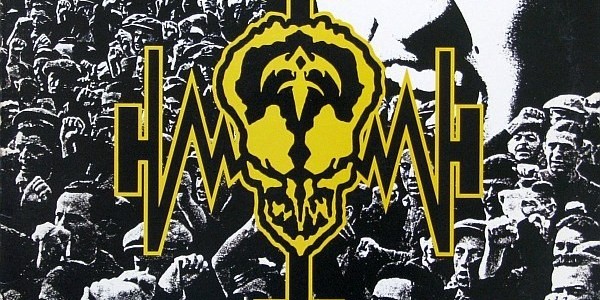
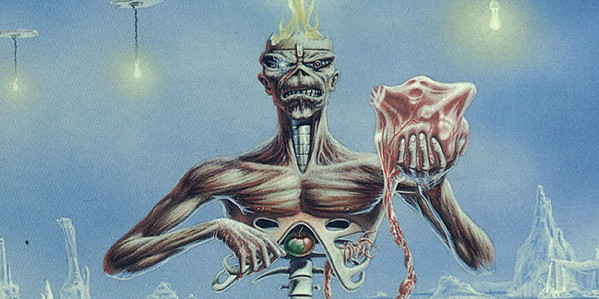
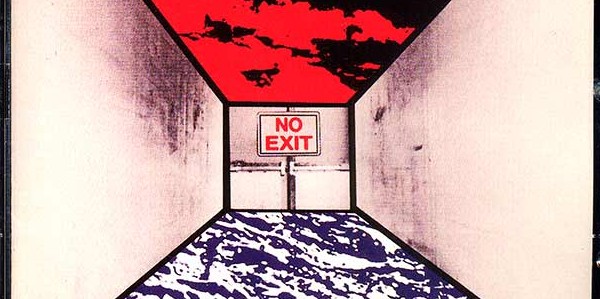

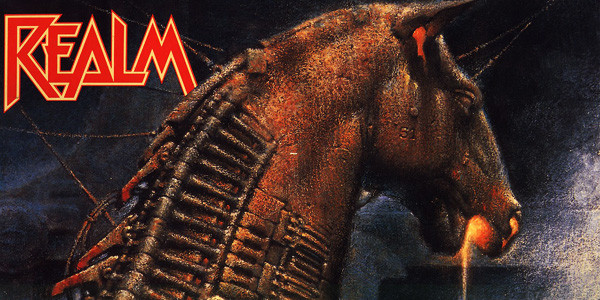
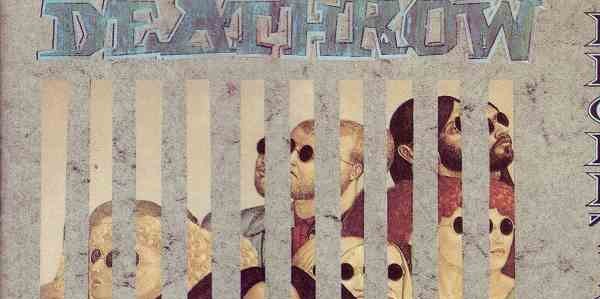
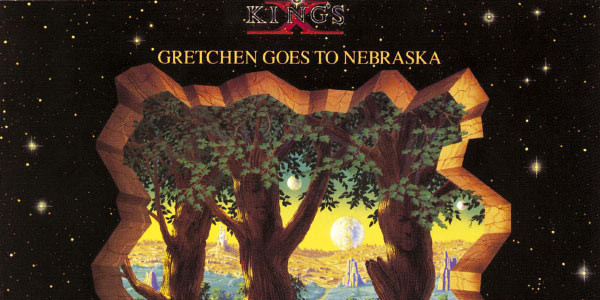
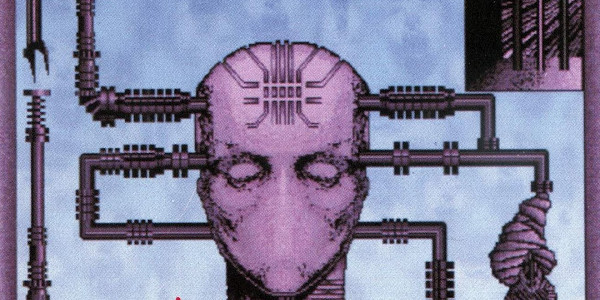
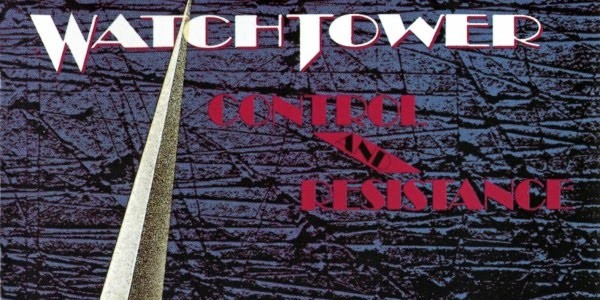
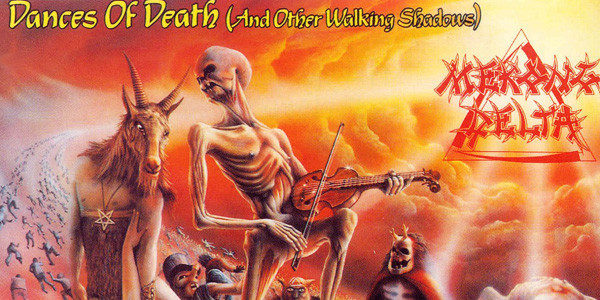
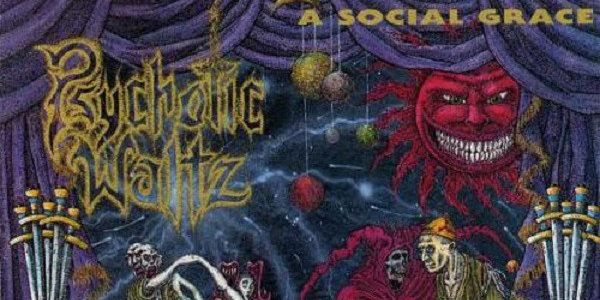
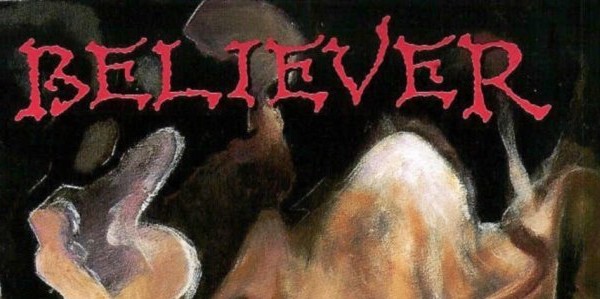

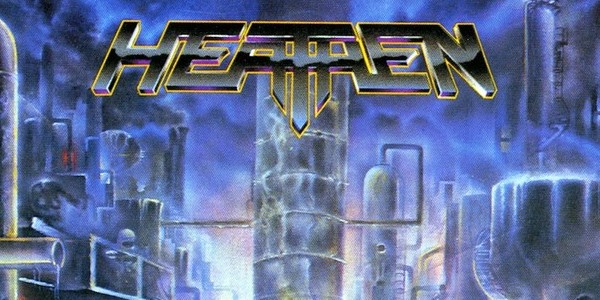
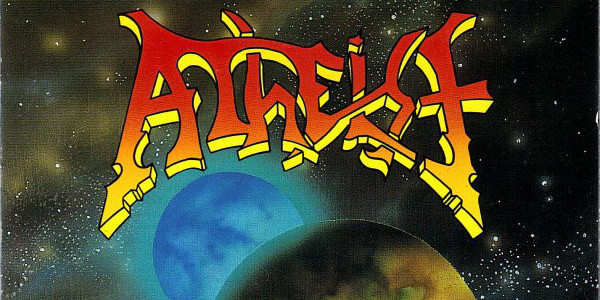
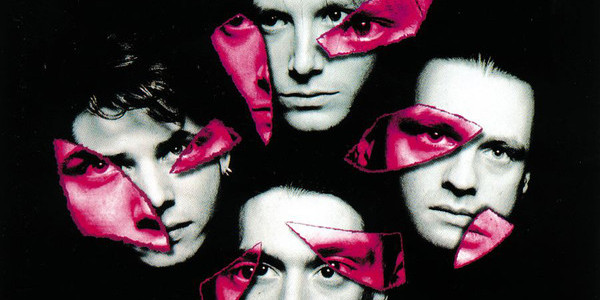
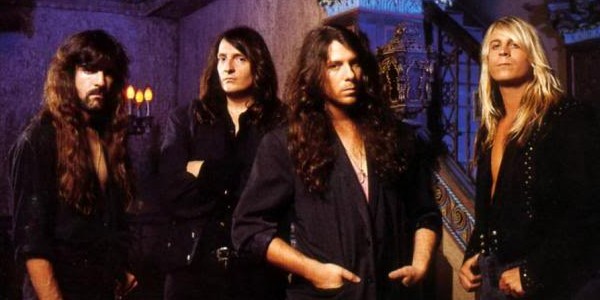
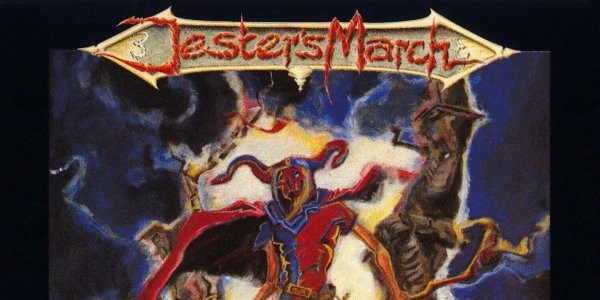
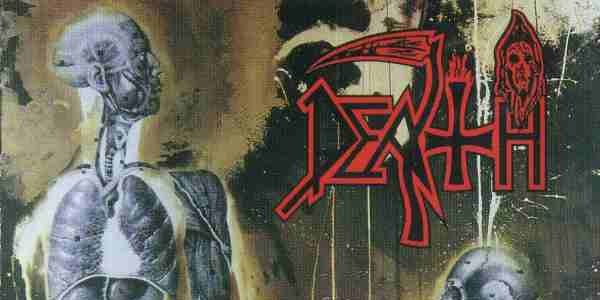
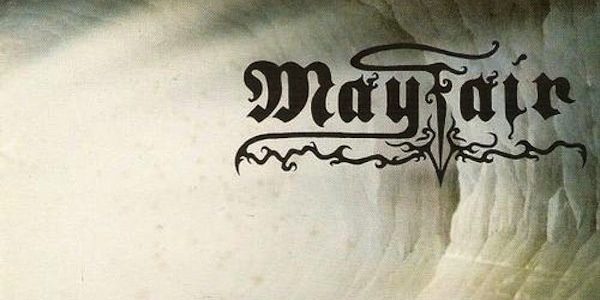
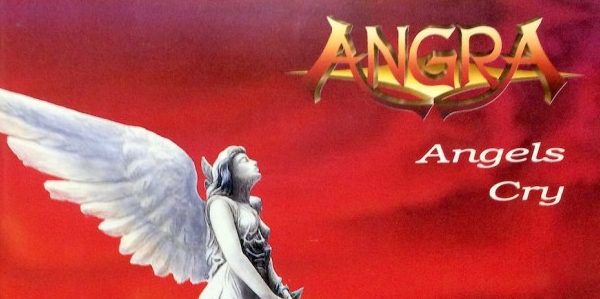

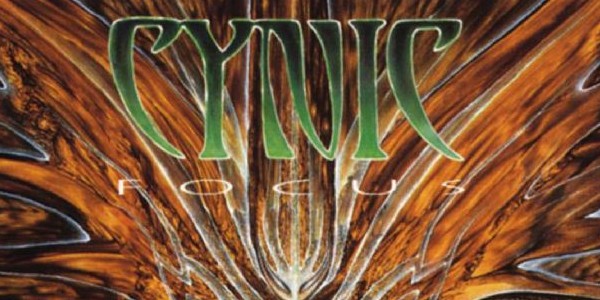


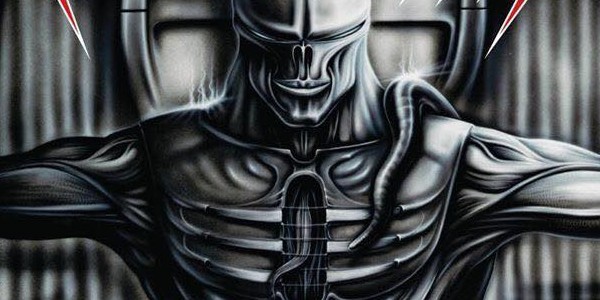
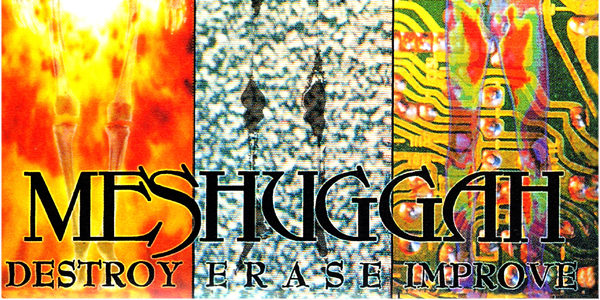
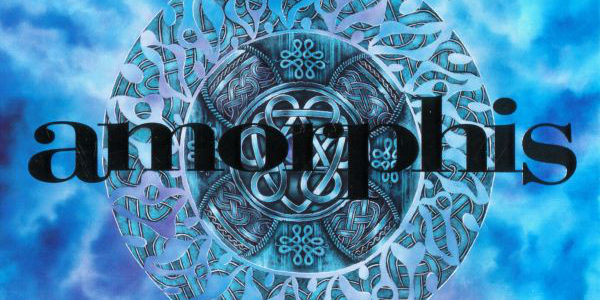
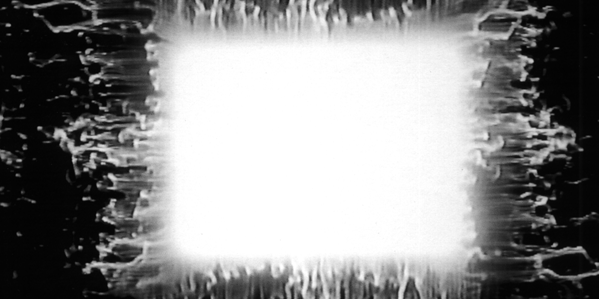
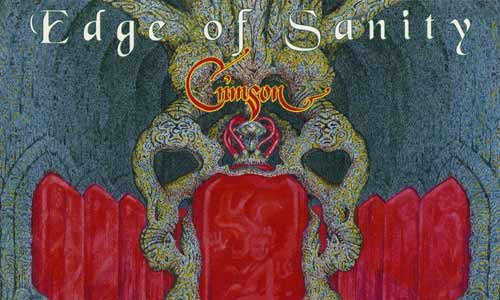
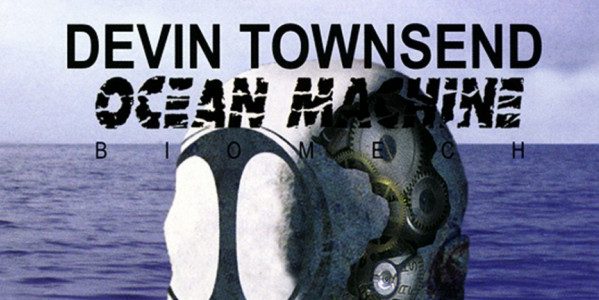

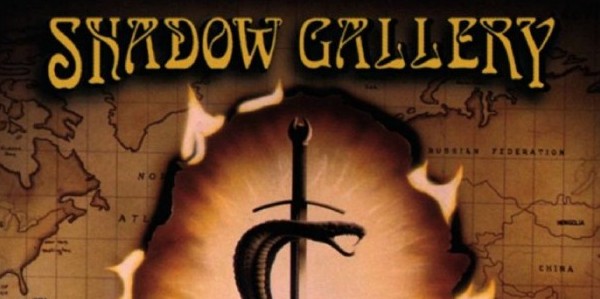
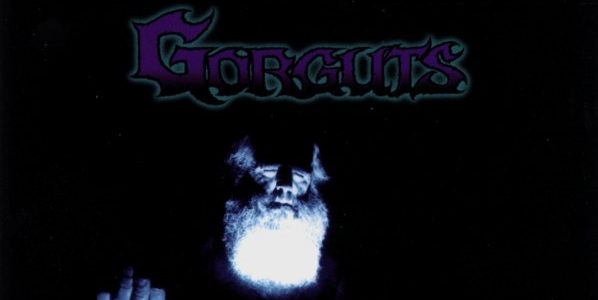
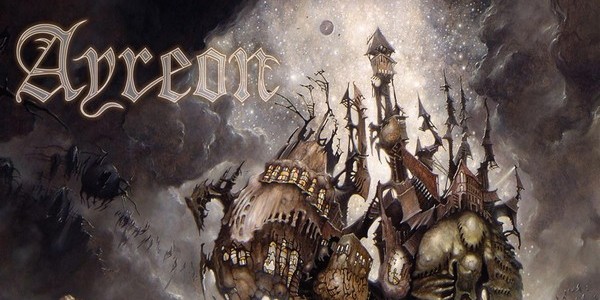

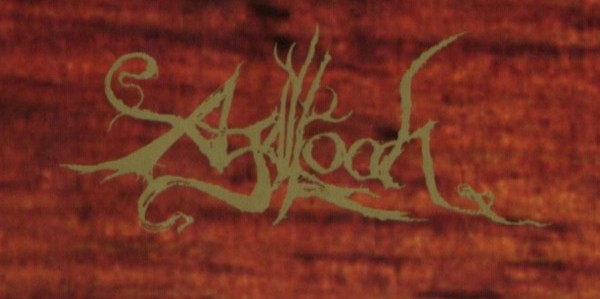
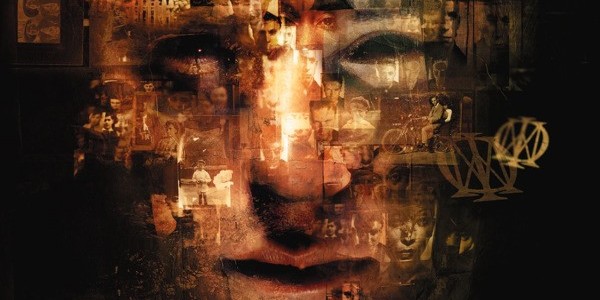

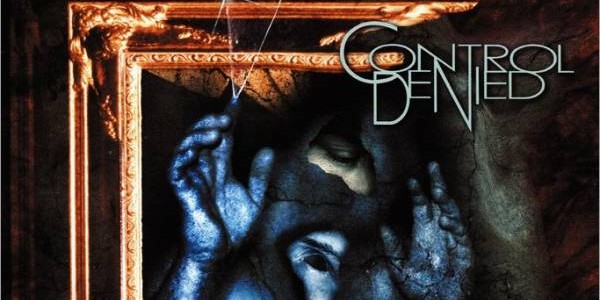








Cool to have worked on this record. Great honor to be on the list
Good! But where is SADIST’s Above The Light?
Damn, that’s a good shout! Missed that completely \m/
What about Punishment For Decadence by Coroner?????? Or Think This by Toxik?
Punishment For Decadence may be an oversight but Think This is (arguably) not a match for the majority of albums featured! \m/
A bit late here.
Decent list for sure but “I beg to differ” Coroner sure fits the Prog Metal headline a lot better than a number of other entries.
Apropos – Prong is missing too
Toxik-Think This